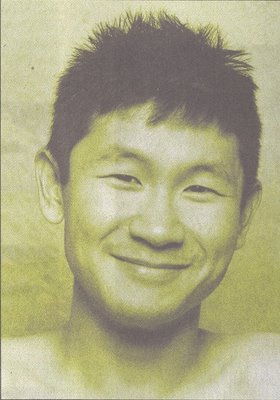
> theatre
Cinta Julia
The Esplanade
Esplanade Theatre Studio
Sunday
This is the first time veteran Malaysian actress Fauziah Nawi is performing in Singapore, but let’s hope it won’t be the last. Her performance in Cinta Julia (Julia’s Love) is a tour de force, showcasing her extraordinary artistic command of voice and movement.
The play premiered just last year in Kuala Lumpur, but it represents an older tradition of sandiwara theatre, most popular around the seventies and eighties.
Written as a dramatic monologue, it tells the tale of a young woman named Julia and her widowed mother. Theirs is a classic story of women’s suffering at the hands of the men they love, spread over two generations.
Playwright-director Iryanda Mulia Ramli (Mul) has created a text replete with elaborate, poetic language. He alludes endlessly to “the well of love”, even comparing Julia’s humble home to a palace.
Often, the play feels dated. Several scenes centre around an antique gramophone and memories of joget cabaret halls. Also, there is no acknowledgment that late 20th century women’s lives involve fulfilling careers or friendships. The feminine world remains bounded by family, romance and exploitation.
Mul also avoids straightforward storytelling techniques, so that we’re never sure of certain details, including the accident that killed Julia’s father. Episodes melt into one another with utter fluidity, making it sometimes tricky to follow the course of events.
Luckily, Fauziah’s presence is mesmerising. Even seated and motionless, as she is at the beginning of the play, she grips our attention as she makes the air ring with the venomous curses of a woman scorned.
In later scenes, her skills as a physical actor rise to the fore. She re-enacts abuse by slapping her own face and recoiling violently in shock. She dances her sorrows away as Julia’s mother, her body encapsulating both anguish and joy, both the stiffness of aged bones and the memory of carefree youth.
The conclusion is rather cliché. Heartbroken over the failure of her marriage, Julia hears a divine voice and realises that she has sinned by turning away from the love of God. Fortunately, this gives us a chance to hear Fauziah’s lovely singing voice, as she closes the play with a song of repentance.
Cinta Julia is ultimately valuable for its very datedness. It reminds us of the strength and beauty that sandiwara can possess, especially when performed by a maestra. In this age of contemporary theatre, it’s good to return to the classics.
This review appeared in an edited form in Straits Times Life! on Tuesday 26 October 2010. As a poet, I'm distressed by the way the text flowed (or failed to flow) after editing. That's why I'm reposting this. Ideally, I need to figure out a writing style that'll come out more gracefully.

No comments:
Post a Comment